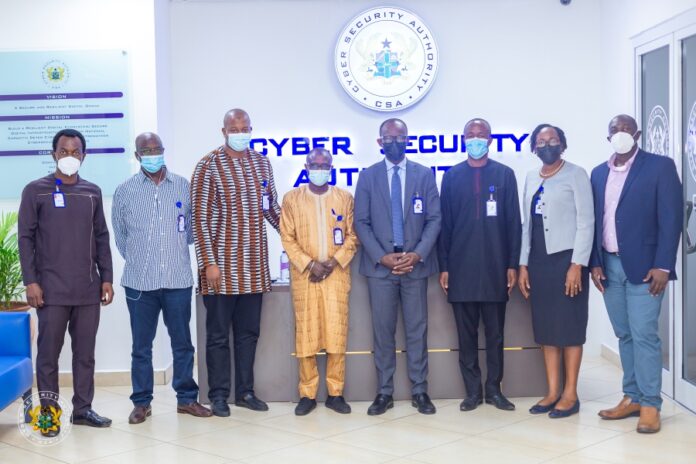Introduction
The African Union (AU) Convention on Cyber Security and Personal Data Protection, commonly referred to as the Malabo Convention, represents a groundbreaking legal framework designed to enhance cybersecurity, regulate electronic transactions, and safeguard personal data across Africa. Officially adopted on 27 June 2014 in Malabo, Equatorial Guinea, the convention seeks to unify the continent’s approach to digital governance and fortify its defenses against cyber threats.
Despite its early adoption, it took nearly a decade for the convention to enter into force. As stipulated in Article 36, the treaty required at least 15 ratifications from AU member states to become legally binding. This milestone was reached in May 2023 when Mauritania ratified the convention, triggering its official implementation 30 days later, on 8 June 2023.
Key Provisions of the Malabo Convention
The Malabo Convention is a comprehensive treaty that establishes a legal and regulatory framework covering four crucial areas:
- Cybersecurity and Cybercrime
One of the convention’s primary objectives is to combat cyber threats and criminal activities conducted in digital spaces. It criminalizes offenses such as hacking, identity theft, cyber fraud, and online financial crimes. Additionally, it outlines the legal procedures for investigating and prosecuting cybercriminals while encouraging cross-border collaboration among AU member states to combat transnational cyber threats effectively. - Personal Data Protection
In recognition of the right to privacy, the convention mandates the establishment of national legal frameworks to regulate the collection, processing, storage, and transfer of personal data. To ensure compliance, the convention requires AU member states to create independent data protection authorities tasked with enforcing regulations and monitoring adherence to privacy standards. - Electronic Transactions
As Africa increasingly embraces digital commerce, the Malabo Convention aims to facilitate secure electronic transactions. It provides guidelines for the legal recognition of electronic communications, electronic signatures, and digital contracts, fostering trust and confidence in online financial activities. This provision is particularly crucial for boosting e-commerce and digital trade across the continent. - International Cooperation
Given the borderless nature of cyber threats, the convention underscores the importance of international collaboration. It promotes the sharing of intelligence, coordinated legal responses, and mutual assistance among African nations to address cybersecurity challenges and uphold data protection standards.
Ratification Status and Challenges
On 8 June 2023, the Malabo Convention officially came into effect after securing ratifications from 15 AU member states, including Angola, Benin, Chad, Congo, Egypt, Gabon, Gambia, Guinea-Bissau, Lesotho, Mauritania, Namibia, Niger, São Tomé and Príncipe, Senegal, and Zambia. However, notable economic and technological powerhouses, such as South Africa, have yet to ratify the convention. Some countries have expressed reservations about aligning their national legislation with the convention’s provisions, citing concerns about potential conflicts with existing laws and regulatory frameworks.
Why the Delayed Ratification?
The protracted ratification process of the Malabo Convention can be attributed to several factors:
- Pre-existing National and Regional Frameworks
Many African nations have already enacted national data protection laws that are often more robust and aligned with global standards, such as the European Union’s General Data Protection Regulation (GDPR). Additionally, regional blocs like the East African Community (EAC) and the Economic Community of West African States (ECOWAS) have developed their own digital security and data protection frameworks, reducing the perceived necessity of adopting the Malabo Convention. - Competing Digital Governance Frameworks
The emergence of the African Continental Free Trade Agreement (AfCFTA) and its forthcoming Digital Protocol, which includes provisions on data flows and cybersecurity, has offered countries an alternative regulatory mechanism. Many nations see AfCFTA’s digital framework as a more modern and trade-oriented approach, potentially rendering the Malabo Convention less relevant in the broader scheme of Africa’s economic integration. - Limited Political Will and Institutional Support
The dual focus of the Malabo Convention on cybersecurity and data protection has complicated its adoption. Some African governments prioritize cybersecurity for national security reasons but approach data protection differently, often under separate regulatory bodies. Additionally, the absence of a strong oversight mechanism within the AU has hindered widespread implementation. Without a central institution driving ratification and compliance, many countries have deprioritized the convention. - Perceived Outdated Provisions
Since its adoption in 2014, the digital landscape has evolved significantly, with new challenges such as artificial intelligence, cross-border data flows, and cloud computing emerging as critical concerns. Critics argue that the Malabo Convention lacks comprehensive provisions addressing these modern issues, making it less appealing to nations seeking up-to-date digital governance frameworks.
The Road Ahead: Strengthening Africa’s Digital Future
The enforcement of the Malabo Convention represents a significant milestone in Africa’s journey toward a harmonized digital ecosystem. However, the varying pace of ratification and implementation underscores the need for continued efforts to modernize and align the convention with contemporary digital realities. Moving forward, the AU could consider:
- Updating the Convention: Introducing amendments that incorporate emerging trends in cybersecurity, data governance, and digital trade could enhance its relevance.
- Establishing an Oversight Body: Creating a dedicated AU institution to monitor, facilitate, and support the implementation of the convention would improve adoption rates.
- Promoting Awareness and Capacity Building: Educating governments, businesses, and the public on the benefits of a unified cybersecurity and data protection framework could accelerate ratification and compliance.
- Enhancing Regional and Global Collaboration: Aligning the Malabo Convention with other global digital governance frameworks, such as GDPR and AfCFTA’s Digital Protocol, would foster a more integrated and adaptable regulatory environment.
In conclusion, while the Malabo Convention is a crucial step in Africa’s cybersecurity and data protection journey, its long-term effectiveness depends on sustained efforts to refine its provisions, encourage wider adoption, and integrate it within Africa’s broader digital transformation agenda.
















 The African Research (AR) Index is a comprehensive scholarly directory and database focused explicitly on journal publishers that publish and disseminate African research.
The African Research (AR) Index is a comprehensive scholarly directory and database focused explicitly on journal publishers that publish and disseminate African research.

